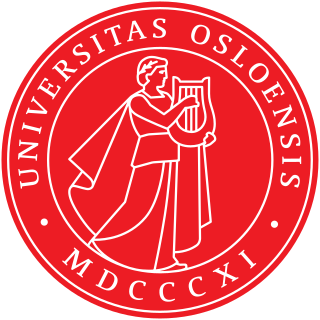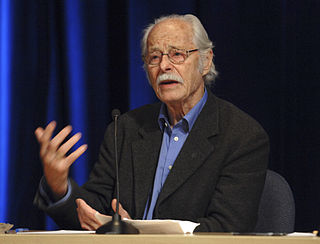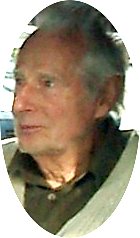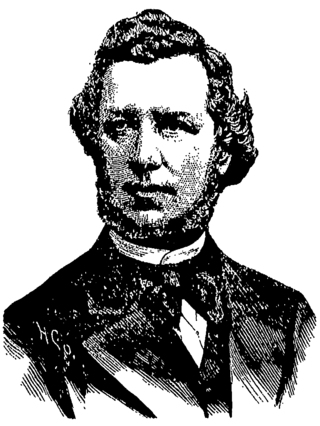Related Research Articles

Evil, by one definition, is being bad and acting out morally incorrect behavior; or it is the condition of causing unnecessary pain and suffering, thus containing a net negative on the world.

The University of Oslo is a public research university located in Oslo, Norway. It is the oldest university in Norway and consistently considered the country's leading university, one of the highest ranked universities in the Nordic countries and one of world's hundred highest ranked universities. Originally named the Royal Frederick University, the university was established in 1811 as the de facto Norwegian continuation of Denmark-Norway's common university, the University of Copenhagen, with which it shares many traditions. It was named for King Frederick VI of Denmark and Norway, and received its current name in 1939. The university was commonly nicknamed "The Royal Frederick's" before the name change, and informally also referred to simply as Universitetet.

Hannah Arendt was a German-American historian and philosopher. She was one of the most influential political theorists of the 20th century.

Johan Vincent Galtung was a Norwegian sociologist and the principal founder of the discipline of peace and conflict studies. He was the main founder of the Peace Research Institute Oslo (PRIO) in 1959 and was its first director until 1970. He also established the Journal of Peace Research in 1964.

Zygmunt Bauman was a Polish–British sociologist and philosopher. He was driven out of the Polish People's Republic during the 1968 Polish political crisis and forced to give up his Polish citizenship. He emigrated to Israel; three years later he moved to the United Kingdom. He resided in England from 1971, where he studied at the London School of Economics and became Professor of Sociology at the University of Leeds, later emeritus. Bauman was a social theorist, writing on issues as diverse as modernity and the Holocaust, postmodern consumerism and liquid modernity.

Thomas Fredrik Weybye Barth was a Norwegian social anthropologist who published several ethnographic books with a clear formalist view. He was a professor in the Department of Anthropology at Boston University, and previously held professorships at the University of Oslo, the University of Bergen, Emory University and Harvard University. He was appointed a government scholar in 1985.

"Little Eichmanns" is a term used to describe people whose actions, while on an individual scale may seem relatively harmless even to themselves, taken collectively create destructive and immoral systems in which they are actually complicit. The name comes from Adolf Eichmann, a Nazi bureaucrat who helped to orchestrate the Holocaust, but claimed that he did so without feeling anything about his actions, merely following the orders given to him.

GeirThomas Hylland Eriksen was a Norwegian anthropologist known for his scholarly and popular writing on globalization, identity, ethnicity, and nationalism. He was Professor of Social Anthropology in the Department of Social Anthropology at the University of Oslo. He has previously served as the President of the European Association of Social Anthropologists (2015–2016), as well as the Editor of Samtiden (1993–2001), Norsk antropologisk tidsskrift (1993–1997), the Journal of Peace Research, and Ethnos.
Johan Vilhelm Aubert was an influential Norwegian sociologist. He was a professor at the Faculty of Law, University of Oslo from 1963 to 1971 and at the Department of Sociology from 1971 to 1988. He co-founded the Norwegian Institute for Social Research already in 1950, and has been labelled the "father of Norwegian sociology". In his early life he was a member of the anti-Nazi resistance group XU, and while later involved on the radical wing of the Labour Party, he edited the newspaper Orientering.
Adriana Cavarero is an Italian philosopher and feminist thinker. She holds the title of Professor of Political Philosophy at the Università degli studi di Verona. She has also held visiting appointments at the University of California, Berkeley and Santa Barbara, at the New York University and Harvard. Cavarero is widely recognized in Italy, Europe and the English-speaking world for her writings on feminism and theories of sexual difference, on Plato, on Hannah Arendt, on theories of narration and on a wide range of issues in political philosophy and literature.
The Norwegian Centre for Violence and Traumatic Stress Studies is a research centre in Oslo, Norway, and Norway's national research institution in violence and sexual abuse; disaster management, terrorism, armed conflicts and traumatic stress; and forced migration and refugee health research. It is interdisciplinary and employs experts mainly in psychology, psychiatry, and the social sciences. In addition to carrying out research and related activities, the institute advises the Government of Norway in its areas of expertise and has some official emergency management functions at the national level. NKVTS has 101 employees.

Arne Dekke Eide Næss was a Norwegian philosopher who coined the term "deep ecology", an important intellectual and inspirational figure within the environmental movement of the late twentieth century, and a prolific writer on many other philosophical issues. Næss cited Rachel Carson's 1962 book Silent Spring as being a key influence in his vision of deep ecology. Næss combined his ecological vision with Gandhian nonviolence and on several occasions participated in direct action.
Events in the year 1948 in Norway.
Alette Schreiner, née Falch was a Norwegian researcher.
Arne-Johan Henrichsen was a Norwegian philologist.
Robert Fine was a British sociologist. He was a leading European scholar on the history of social and political thought, cosmopolitan social theory, the social theory of Karl Marx and Hannah Arendt, the Holocaust and contemporary antisemitism, crimes against humanity and human rights. He was a Professor Emeritus at Warwick University. He died on 9 June 2018.
Hans Petter Graver is a Norwegian legal scholar. He serves as professor and was the dean at the Faculty of Law, University of Oslo between 2008 and 2015. He was replaced by Dag Michalsen.

Frederik Wilhelm Klumpp Bugge was a Norwegian theologian and politician for the Conservative Party.

Thorolf Vogt was a Norwegian geologist, professor and Arctic explorer.

Anna Luise Kirkengen is a Norwegian physician and researcher. She is a professor of public health at the Norwegian University of Science and Technology in Trondheim. Born and trained in Germany, she has been a general practitioner in Oslo for over 30 years, being the only female GP in her district. Her PhD thesis studied health problems in adulthood associated with childhood sexual abuse which she has authored into a book entitled Inscribed Bodies: Health Impact of Child Sexual Abuse.
References
- ↑ Knut Olav Åmås, ed. (2008). Hvem er hvem?. Oslo: Aschehoug. pp. 622–623. ISBN 978-82-03-23561-0.
- ↑ "Gruppe 3: Idéfag" (in Norwegian). Norwegian Academy of Science and Letters. Archived from the original on 27 September 2011. Retrieved 28 October 2009.
- ↑ Vetlesen, Arne Johan (2005). Evil and Human Agency. New York: Cambridge University Press. pp. Introduction and Table of Contents.